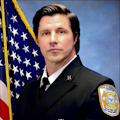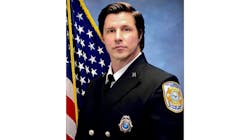The Most Important Relationship in the Fire Department
When you think about important relationships in the fire department, you might think about the chief and the company officer or the company officer and the senior guy or, perhaps, the 20-year veteran and the whole station to which they are assigned.
Of course, these relationships are significant and create tremendous benefits for the crew, stations and overall fire service morale. Personally, I believe that the relationship between the company officer and the rookie is the most important.
Your initial response might be, “Wait, the rookie? Come on. We don’t even let rookies speak,” and, well, you have a point. However, let me put it into perspective, and maybe I’ll change your mind.
Every station has a name for the incoming rookie—the new guy, probie, kid, hey you, FNG, etc. Whatever you want to call your rookie, sooner or later you will be assigned one to oversee. Congratulations, you just won the lottery for determining the success or failure of a single person. Wait, there’s more. There’s no playbook on how to do it. That’s where I can help.
Of course, rookies have their red and blue books or their sign-off sheets, which gets them proficient in the basics. Those sign-off sheets aren’t what determine good or bad rookies, though. We all know that there is so much more to it.
Steps to success
We don’t get to choose our family, and we don’t get to choose our rookie. Some of us are lucky enough to get the valedictorian or one of the other top-notch recruits, but not all of us will be. Either way, our job is to set them up for success.
Failure to create a well-rounded rookie can lead to career underachievers. All of us know these members who have been in the department forever. They complain, skate by, don’t perform well and typically just don’t care. I bet that if we went back to when they were a rookie, they probably had an officer who didn’t set them up for success in the ways that I’m about to discuss. How unfortunate is that? If someone just could have got to them early on.
Clear expectations
Setting clear expectations is essential and should be discussed on day one when that new rookie walks into your office and reports for duty. I can’t stress enough how important it is to define the expectations that you have and how to get the rookie to achieve them. If you aren’t doing this, it’s a true disservice to that individual. It’s up to you to decide how many expectations that you want to present.
However, a word of caution: While having too few expectations can lead to an unclear direction and mission, having too many can lead to confusion and micromanagement. Four to six clear and concise expectations is your sweet spot.
Academy vs. “the street way”
Academy instructors teach by the book, and they should. The foundation to any great firefighter is the basics that we all learned and, in a pinch, most likely will revert to using. Your bright-eyed, bushy-tailed rookie is coming into the station with the “book” way on how to do everything from throwing ladders and tying knots to pulling handlines.
We all know that there is an easier and more efficient way on how to do the basics, though. As the company officer, it’s your job to lead and instruct the new rookie by setting up and implementing a training plan. Make it clear that our bread and butter in the fire service is the basics, and now that the rookie is on the floor, you can start giving that person pointers and tips on how to be efficient on the fire scene. Plus, you want to get your rookie on the same training standards and practices as the rest of your crew.
Lead by example
This should be rather standard for anyone who made it to the company officer level. How can you expect your crew to do something or adhere to the expectations that you laid out if you don’t do that thing or don’t adhere to the expectation yourself? Simple answer: They won’t. If you have been a company officer for more than a week, you know that firefighters who are on shift analyze your every move with a fine-toothed comb. People just wait for you to make a mistake or to fail to do something that you told them they should do. That’s OK; there must be accountability on both ends.
That said, realize how important it is to hold yourself to the highest standard. If you are the model that your rookie references, there isn’t much room for interpretation. Practice what you preach and be a person of your word. Don’t get me wrong, there are going to be times when you mess up or contradict something you previously said. We are human after all. However, if you own up to it right away and take ownership of it, two important things happen: People will respect that you owned up to it, and you will earn their trust and maintain your integrity. No one wants to hear excuses.
Creating good habits
Creating good habits early on can be a lifesaver. One good practice that rookies should get into is checking off their SCBA pack at the start of every shift. Now, most departments already do that, but I mean really check it off. Pull it out of the seat bracket, turn it on, put the face mask on and connect to air. Check the seal, check the gauges and check the battery. Are they all good? This might take a few extra minutes in the morning, but it might just save their life down the road.
Being comfortable with the SCBA lifeline is essential. Identify and establish other positive work habits early. These habits set up your rookies for lifelong routines that foster success throughout their career.
Positive work environment
A positive work environment starts with a positive attitude. The company officer often sets the mood for the station. Most of us have been to a station where the officer greets everyone on shift, has roll call with a solid plan for the day and brings an overall positive outlook. Some of us have been in a station with that grumpy officer who brings everyone down with them. It’s like a virus: constant negativity along with problems and never having a single solution.
There is nothing wrong with complaining, but bring a solution if you have an issue. If you believe that your rookie won’t notice this behavior, reconsider your viewpoint. Fostering a positive attitude spreads to your crew and signals to your rookie that this is the environment that you want to create in the firehouse.
Become a mentor
While fostering a positive work environment, you must focus on building relationships and rapport with your crew. One approach is being a mentor to your rookie. Your role as a mentor is to share information about your career path and provide guidance, motivation, emotional support and role-modeling.
As a mentor, you might help to explore career paths, to set goals, to develop contacts and to help to identify their road map to success. Not all company officers want to be mentors to their rookies, though, which is OK, as long as you realize that. Being a mentor is taking a more prominent role in your rookie’s life, which requires extra effort. If you aren’t willing to put the time in, don’t be a mentor. Pass that role on to a senior member who is willing to do the work.
The future
Rookies are the future of departments. They might be the next company officer, the next battalion chief, the next fire chief. If you have pride and ownership in your department, then paying it forward to the next generation should be something that you strive to do. Great company officers should leave behind one legacy: leaving their department better off than when they started.
There is no better way to do that than to give rookies the best possible chance to succeed and to flourish in their career.
About the Author

Daniel Vecchiolla
Daniel Vecchiolla is a captain for Navy Region Mid-Atlantic Fire & Emergency Services. He has been in the fire service for nine years, having started his career working for the city of Chesapeake, VA. Vecchiolla transitioned into the Department of Defense system in 2016 and now is stationed at Naval Air Station Oceana. He has a bachelor’s degree in psychology and a master’s degree in public administration from Old Dominion University. Vecchiolla has his Fire Officer designation through the Center for Public Safety Excellence (CPSE) and is a peer reviewer through the CPSE, too.
